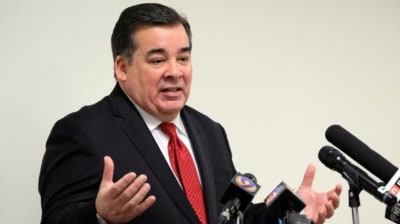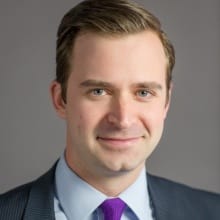The instructor stood at the front of the room, as the teachers took seats in a boxy U-shaped formation, and started the session.
“We’re gonna get through this as fast as we can,” the facilitator said. “We know you don’t want to be here, so we’re gonna move through this.”
Eyes rolled. People shifted in their seats. And with that, the half-day professional development session—a chance for teachers to improve their skills and trade stories with peers—started.
“I always cringe when that’s the first thing I hear,” says Joanna Schimizzi, a North Carolina high school biology teacher, recalling a professional development seminar she attended a few years ago. “I think that sets people up for a negative mindset because you’re saying this isn’t valuable.”
In many ways, professional development is a quandary for educators: They complain there are not enough opportunities to enrich their knowledge—but when they attend a workshop, it does not feel worthwhile.
To the contrary, high-quality professional development is one of the most promising avenues for teachers to grow their practice. A study released in May by the Learning Policy Institute suggests it is an essential component of teacher—and, it follows—student success.
“Sophisticated forms of teaching are needed to develop student competencies such as deep mastery of challenging content, critical thinking, complex problem-solving, effective communication and collaboration, and self-direction,” the report said. “In turn, effective professional development is needed to help teachers learn and refine the pedagogies required to teach these skills.”
But professional development for educators, in North Carolina and across the nation, is underfunded and often ineffective, leaving teachers stuck paying their own way to conferences, districts scrambling to come up with programs that work, and private collaborations searching for a way to fill the gaps.
Money Matters
During the most recent recession, the North Carolina General Assembly cut $12.5 million in annual funding provided to local school districts for staff development. The funding was supposed to return with a better economy, but it never did. In 2011, the legislature formally scrapped the funding and has not replaced it.
Schimizzi, who works for the North Carolina Virtual Public School and is a former Charlotte-Mecklenburg Schools teacher, says other states offer more resources to teachers who want to attend conferences and enrichment programming that will benefit their students. “They’ll pay your flight, they’ll pay your hotel, they’ll pay your registration,” she says. “That’s just not something, in North Carolina, you would ever consider asking for. The funds are so very limited.”
Even if a school or district pays for the conference registration, it often does not cover the full cost of food, gas, or hotel stays.
“Many teachers in the eastern part of our state leave home well before sunrise in order to reach a conference in Raleigh or Greensboro, then turn around and drive back after the day is finished,” says Lauren Piner, a ninth grade history teacher in Winterville, North Carolina.
School districts here and in other states have relied on federal funds to pay for staff development, but it, too, is in jeopardy. The Trump administration proposed eliminating so-called Title II funding as part of its 2018 budget. The Supporting Effective Instruction State Grants program provides $2.4 billion to local school districts, much of it for teacher professional development. If Congress were to approve the budget as-is, North Carolina school systems would take a roughly $45 million hit.
That kind of reduction would decimate local line items used to send teachers to conferences, workshops, and training programs which are already under strain from the loss of state and county funding.
“Everyone knows professional development is what’s needed and that’s what’s best, but it’s really hard to match that up with the reality that districts are facing,” says Beth Anderson, executive director of Durham’s Hill Center, which provides professional development to about 1,000 teachers a year. “It’s not that teachers don’t want it or the school district doesn’t want it. The resources simply aren’t there.”
Quality and Quantity
The financial burden of professional development is not the only challenge educators face, however. Many say the quality and structure of some programs is not tailored to teachers’ individual needs.
“Various professional developments are billed as the silver bullet which will fix all issues in every school,” says Jordan Hohm, who taught for the last four years at a middle school in Burlington. “The reality that all educators understand is that schools vary, students vary, teachers vary. The awesome things and challenges in each school are different and are caused by all kinds of factors.”
Educators become jaded about professional development, Schimizzi says, particularly after attending sessions that feel perfunctory. “It can’t just be a half-a-day, a one day. It’s gotta be more than that.”
The notion that professional development is a “box to check” to satisfy school or district goals can also frustrate educators. “When I talk to people about what we do, they say, ‘Oh, yeah, that’s a half day on Saturday, right?’” says Scott Gartlan who directs the Charlotte Teachers Institute at UNC Charlotte. “There is that idea that you do it because you need a little brush-up or you do it because of compliance.”
This attitude, and the administrative revolving door often found in schools and central offices, may lead to a dizzying array of professional development initiatives that can feel disjointed and superfluous. “We hear (teachers) call it the fad du jour,” Anderson says.
The Learning Policy Institute study, which reviewed dozens of professional development programs for best practices, argued that one should be considered effective if it:
- Is content focused
- Incorporates active learning utilizing adult learning theory
- Supports collaboration, typically in job-embedded contexts
- Uses models and modeling of effective practice
- Provides coaching and expert support
- Offers opportunities for feedback and reflection
- Is of sustained duration
More than a dozen educators who shared their professional development experiences with EdNC suggested such programs exist in North Carolina—almost all had attended one—but they also agreed such opportunities are scarce, and often overshadowed by less effective workshops. Teachers frequently leave half-day sessions feeling uninspired.
“Teachers maybe haven’t experienced a lot of personalized PD, Schimizzi says. “We tell teachers to personalize their classroom for their students but then you sit a lot of teachers down in one session and expect it to be the right fit for everyone there.”
Last year, Schimizzi and other teachers from across the state joined together to apply for a Gates Foundation grant to create their own teacher-led professional development workshop. The program served about 100 educators and organizers considered it a success—they have already planned to continue it this fall. But Schimizzi worries that the impending loss of federal funding, on top of the state cuts, could lead districts to turn to low quality professional development workshops, or eliminate the programming altogether.
“I would just hate to see it get pawned off on teachers,” she says. “OK, now you’re responsible for your own professional development, too.”
Recommended reading




